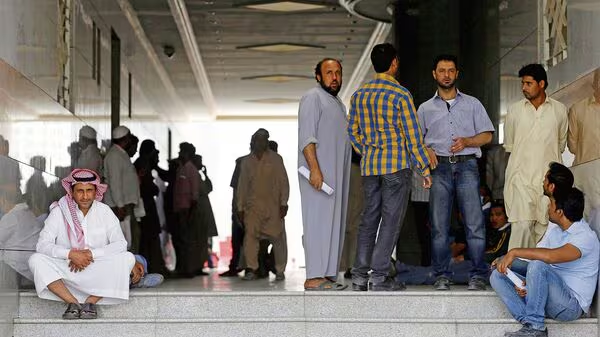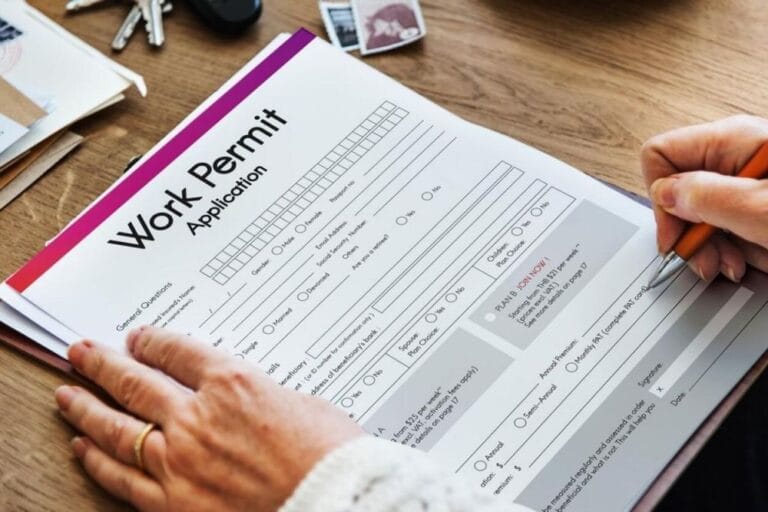
In a historic move, Saudi Arabia has officially abolished its decades-old Kafala (sponsorship) system, ending a controversial framework that governed the lives of millions of migrant workers for more than 70 years.
The decision, announced in June 2025, marks one of the most significant shifts in the Kingdom’s labour policy. It is expected to directly impact around 13.4 million foreign workers—who make up roughly 42% of the total population—most of whom come from South and Southeast Asia.
This reform dismantles the restrictive sponsor-based model and replaces it with a modern, contract-based employment system. This change is a cornerstone of Crown Prince Mohammed bin Salman’s Vision 2030 plan, which aims to diversify the economy, project a modern image, and create a more attractive and competitive labour market.
Table of Contents
What Are the New Rules for Expats?
The reforms, officially known as the “Labour Reform Initiative,” are being managed through the Ministry of Human Resources and Social Development’s digital platforms. The changes grant several new freedoms that were previously impossible under the Kafala system.
- Job Mobility: Expat workers will no longer require their Kafeel’s (sponsor’s) permission to change jobs upon the completion of their employment contract.
- Freedom to Travel: The controversial “exit and re-entry visa” system, which required employer approval for a worker to leave the country, has been eliminated. Workers can now request this directly from the government.
- Freedom to Leave: Workers can now obtain a “final exit” visa to leave the Kingdom permanently without their sponsor’s consent, ending a restriction that trapped many in disputes.
- Your Contract is Key: The employment relationship is now governed directly by a digitally-attested employment contract. This document, managed on the “Qiwa” platform for private-sector workers, is the sole authority on all labour rights and disputes.
New Protections for Domestic Workers
Crucially, the reforms also include new regulations specifically targeting the domestic worker sector—a group of an estimated 4 million people who were often the most vulnerable under the old system.
These rules, managed through the separate “Musaned” platform, introduce unified contracts that guarantee:
- Payment of wages through the Wage Protection System.
- Defined daily rest hours and a weekly day off.
- Paid annual leave and sick leave.
- An end-of-service gratuity.
- Banning employers from charging domestic workers for recruitment fees or residency permits (Iqama).
While rights groups note that implementation will be key, the inclusion of domestic workers in these reforms is a significant step that was often missing from previous initiatives in the region.
What Was the Kafala System?
The word Kafala, meaning “sponsorship” in Arabic, was introduced in the 1950s to manage the influx of foreign labour needed to build Saudi Arabia’s oil-boom economy.
Under this system, every migrant worker’s legal and residency status was tied directly to one employer, the Kafeel. This created a severe power imbalance that, according to human rights organisations, enabled widespread abuse.
Employers could legally:
- Confiscate a worker’s passport.
- Withhold or delay wages without consequence.
- Prevent a worker from changing jobs.
- Deny a worker’s request to leave the country.
Rights groups like the International Labour Organization (ILO) have long condemned the system as “modern-day slavery,” arguing it stripped workers of basic freedoms and left them with little legal recourse against exploitation.
Why Is This Happening Now?
The abolition of Kafala is not just a humanitarian move; it is a core economic strategy.
- Vision 2030: Saudi Arabia is building massive “giga-projects” like NEOM and the Red Sea Project. To attract the high-skilled global talent needed for these projects, it must offer a competitive and secure living environment, similar to other expat hubs like the UAE.
- Competing for Talent: The old system made KSA unattractive to top-tier professionals. By removing the sponsor’s control, Saudi Arabia is now competing directly with Dubai and Abu Dhabi for the world’s best engineers, architects, and tech specialists.
- International Image: The move follows years of international pressure and regional trends. Qatar, for example, enacted similar major reforms before hosting the 2022 FIFA World Cup. This decision helps improve the Kingdom’s international standing with investors and foreign governments.
For the 13 million expats in the Kingdom, this reform is not just a policy change—it’s a fundamental shift towards greater dignity, freedom, and control over their own lives and careers.




